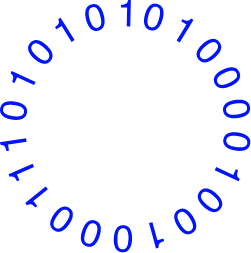September 12, 2022 | By Sarah Benhamou, Principle at BGV
In mid-August, six Israeli startups raised $700 million in one 48-hour period, proving once again that investors believe in Israeli innovation and products.
But that funding bonanza, while impressive, has been the exception and not the rule for 2022.
Instead, Israel is currently experiencing a healthy correction after a red-hot 2020 and 2021.
Examples abound. One company I follow could not find a co-lead investor for its Series B round recently and decided to lower its valuation. This company had signed a term sheet (TS) at $60 million in 2021, but ultimately decided to wait out an uncertain market. Today, that same company has reduced its valuation to $20 million to meet a more reasonable revenue multiplier of the deal.
In 2021, no one batted an eye if a startup raised $15 million in Series A funding at annual recurring revenue (ARR) of $300,000 – $500,000. In August 2022, that is no longer possible. Startups are now raising a bridge round of a few million dollars while building evidence of a product-market fit in hopes of raising more money later.
An uptick leads to a downtick
The truth is, the Israeli market was overheated for a number of years, and this healthy cyclical correction is bringing valuations down to earth.
Israeli tech companies raised $9.8 billion in the first half of 2022, according to the IVC-Leumitech Review, compared to $11.9 billion in the first half and $13.9 billion in the second half of 2021. That represents a significant 30 percent decline, and is especially noteworthy after a continuous uptrend since 2016.
Indeed, the average tech investment in the first half (H1) of 2022 was $24.8 million, down from $33.1 million in 2021. Median tech investments also showed a decline, from $8 million in H1 2022 from $10.9 million in 2021.
While Israel leads the world in tech unicorns per capita, the amount of money raised and the number of funding rounds for billion-dollar companies both fell in 2022 – $3.2 billion in H1 compared to $6.1 billion in H1 2021. (Still, significantly, there were 20 new Israeli unicorns in the first half of 2022, compared to 26 in the first half of 2021.)
When America catches a cold …
The reasons for the funding decline in Israel are easy enough to discern. Economies are contracting around the world and Israel is especially sensitive to economic trouble in the United States and Europe, the source of much of its hitech funding.
To paraphrase a famous quip, when America catches a cold, Israel gets sick. Tech companies in the Startup Nation announced layoffs in July and August to hedge against the worldwide economic downturn.
- Wix laid off 100 employees or 2% of its workforce
- Kaltura laid off 10% of workforce, or about 75 people
- Melio also laid off 10% of its workforce, or about 60 people
- Fiverr laid off 60 employees, 8% of its workforce
- Next Insurance laid off 150 employees, 17% of its workforce
Growth-stage companies will weather the economic storm better, but the entire sector has been affected by a noticeable decline in mid- and later-round investments, as indicated in the chart below (Source: IVC-Leumi tech report).
Of course, investments in early-stage enterprises will continue – but at lower valuations and based on better fundamentals. That means, as we enter a potential recessionary period, investors should focus on B2B companies, which are historically more stable. During this economic fallback, companies that increase productivity and participate in the recovery will fare well.
Sectors poised for growth
As we look ahead, BGV is focused on Israeli sectors that we believe are poised for growth and can take advantage of today’s environment to ride the value creation curve.
Supply chain is one such sector. In the post-pandemic era, and with Russia creating geopolitical instability through its war with Ukraine, governments are demanding greater visibility with regards to critical infrastructure. Coupled with an investing trend in ESG (environmental, social, global), shareholders and customers will demand transparency and better accounting throughout the supply chain. Likewise, the European Union’s CSRD (corporate sustainability reporting directive) requires large companies to disclose how they manage social and environmental challenges.
Climate tech is another sector BGV believes is poised for growth. Here too, ESG concerns are spurring companies to comply with stricter environmental standards. At the World Economic Forum in May, climate change was at the core of the conversation. Cleantech and climate tech are two areas where billions of dollars will soon change hands.
Israeli tech companies have a head start in this sector. The Israeli government has earmarked $900 million for climate tech development with a goal to double the number of climate tech companies, from 55 to 110. The government is also encouraging the establishment of 10 Israeli venture capital funds in the coming years.
Start at Net Zero
As BGV expands its investment portfolio in the climate tech direction, we are on the lookout for entrepreneurs with innovative ideas, along with strategic partners who can work with us to deploy cutting-edge solutions.
Our first major move was to become a founding member of NetZero, a pre-seed and seed-stage venture in energy and climate tech companies. If you are an Israeli entrepreneur with a world-changing idea to protect the environment with game-changing technology, we’d love to talk.
